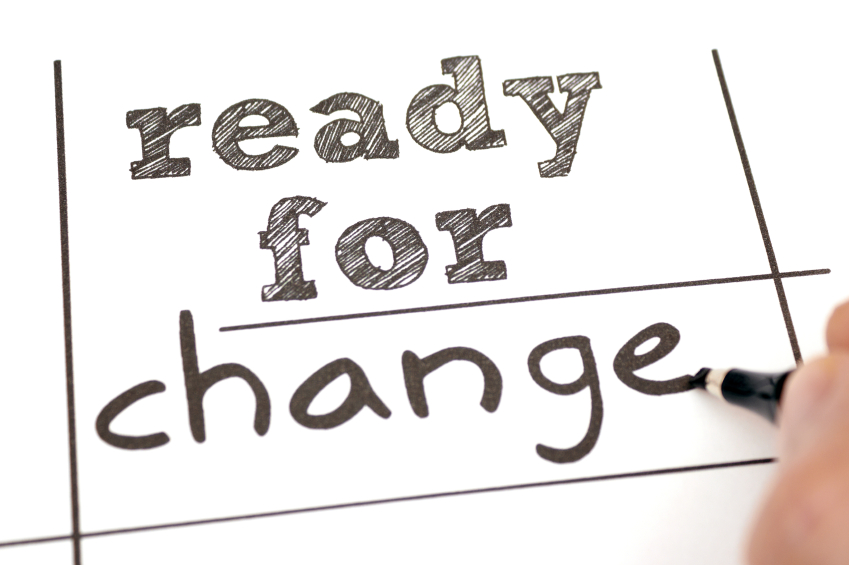
Trauma and Addiction are unfortunately common and linked at the hip. We live in a violent world, one where a majority of the population has at one point or another experienced personal grief and loss at the hands of domestic violence, child abuse, war, rape, accidents or natural disasters. Most people experience these things and go on with their lives, that memory living on with them forever. They are traumatized, but the trauma fades within months.
Some people, however, get stuck on the moment. They subsequently suffer a developmental lag wherein their brain and mind have trouble moving on from the experience, because of the sheer amount of pain associated with it.
A trauma is when the emotional and/or physical pain of an experience is so great that your brain has trouble processing it, and is stuck on the moment, incapable of completely digesting it. Instead of “skipping” over it so to speak, it embeds itself so deeply within you that it becomes a far more significant contributing factor to your instincts and thought processes than any other memory.
One way to look at it is as a sort of permanent activation of the sympathetic nervous system. Trauma victims have a heightened sense of danger and, at times, experience paranoia. Their mind refers back to the pain of that memory, and it causes them to perceive threats where there are none. Sometimes, trauma goes away on its own. Usually, it has to be treated. The treatment isn’t simple, and requires regular counseling. However, things get even more complicated when addiction enters the picture. And sadly, it enters the picture quite often.
The Long-Term Relationship Between Pain, Trauma And Addiction
Pain in general has a long history with addiction. Chronic pain, isolation, anxiety, depression, trauma and addiction are all linked.
It’s a simple relationship – we experience pain, we want the pain to end. Drugs provide short-term relief, and are most dangerous in moments of emotional vulnerability, when we’d like anything that could dull the moment. Opioids are designed analgesics, and easily relieve most forms of pain, both physical and emotional. Alcohol helps drown out the pain, and the emptiness, and the sadness. Amphetamines drive us up the wall, making us feel invulnerable, taking away the fear and inhibition. In one way or another, drugs provide immediate and powerful stress-relief.
But it comes at a high price. And only lasts a short amount of time. Some people learn to manage their dependence – countless people suffer from chronic pain and take only the bare minimum of their medication. Others abuse it. For those struggling with both trauma and addiction, the power of self-medication is all too real.
How PTSD Trauma And Addiction Can Be Treated
PTSD, or post-traumatic stress, develops when a victim of a traumatic incident leads to continuous feelings and symptoms of trauma long after the events of the incident themselves. Victims of child abuse commonly suffer PTSD, and it’s most common in terrible cases of captivity. For victims of sexual violence, for example, the rate of PTSD is between 30 and 50 percent. Among soldiers, the rate is about 11 percent as of Afghanistan, and 20 percent for the Iraqi war.
The difficulty with diagnosing and treating PTSD is that cases differ wildly. Some people experience minor symptoms of trauma, while others suffer from regular full-blown flashbacks.
However, PTSD trauma and addiction can be treated together. In particular by advocating safety. Safety in the form of social boundaries, anger management, exposure therapy, easing into triggers, and having regular one-on-one or group encounters with drug addiction counselors.
Cannot Treat One Without Treating The Other
Drug addiction and mental health issues are commonly correlated because one has an intrinsic relationship with the other. Regardless of how that relationship began or in which direction it goes, treating one requires the other to be treated. It’s not quite as simple as identifying a root cause in medicine and eliminating it to be rid of the symptoms. While addiction can be a symptom, it doesn’t go away quite like a rash does. Instead, you have to seek out a treatment option that aims squarely at every problem you have, rather than addressing them individually.
The goal here is to find treatment that works “together”, beating both trauma and addiction. And this goes for every single other comorbidity. Even an addiction treatment plan related to chronic pain has to consider both conditions – chronic pain fuels addiction, yet if you only work on providing a medication plan to treat the pain, you may fuel a new addiction. It’s important to provide therapy and non-addictive alternatives to help someone cope with their addiction, and learn how to stay away from potential triggers while reducing their overall pain and living with what remains.
One way of looking at it is to stop seeing certain mental issues as entirely separate from one another, and instead looking at each and every single case as an interconnected web of perfectly matching illnesses and problems, woven into each other and feeding off of each other in a twisted symbiosis. Instead of telling patients to tackle each challenge individually, devise a way to deal with all issues.
From the patient’s point of view, this means understanding that every diagnosed issue you have – from your trauma and addiction to your anxiety and depressive thoughts – is part of a system.
A sober living program can help you cope with that system. Aside from providing an environment where countless individuals with wildly different backgrounds can come together to find out how they each struggled with and overcame addiction; sober living homes often also include mandatory counseling and therapy sessions to help each person get the care and evaluation they need to progress in their own recovery journey.
Sober living homes also emphasize a group environment, one where sharing becomes an integral part of the recovery process. In time, vulnerable individuals can open themselves up to others as their confidence increases, and feel empowered by their ability to help and inspire others with the progress they’ve made not only in recovery, but with other issues as well.









